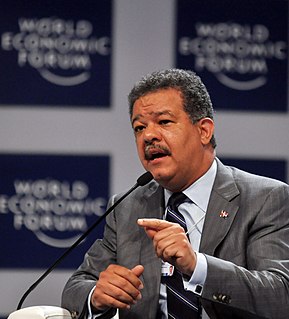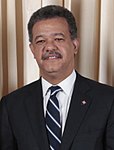
General elections were held in Guatemala on 9 November 2003, with a second round of the presidential election held on 28 December. Óscar Berger won the presidential election, representing the Grand National Alliance, a coalition of alliance of the Patriotic Party, the Reform Movement and the National Solidarity Party. The Alliance were also victorious in the Congressional elections, winning 47 of the 158 seats. Voter turnout was 57.9% in the Congressional elections, 58.9% in the first round of the presidential elections and 46.8% in the second.

Presidential elections were held in the Dominican Republic on 16 May 2004. The result was a victory for former president Leonel Fernández, who defeated incumbent Hipólito Mejía. Voter turnout was 72.8%.

Parliamentary elections were held in Macedonia on 18 October 1998, with a second round on 1 November. VMRO-DPMNE emerged as the largest party, winning 49 of the 120 seats, and later formed a coalition government with Democratic Alternative and the Democratic Party of Albanians.

General elections were held in El Salvador on 20 March 1994, with a second round of the presidential elections taking place on 24 April. Armando Calderón Sol of the Nationalist Republican Alliance won the presidential elections, whilst his party also won the legislative elections. Voter turnout was 50% in the first round of the presidential elections and 45.5% in the second, whilst it was 53.1% for the legislative election.

Presidential elections were held in Belarus on 23 June 1994, with a second round on 10 July. They were the first national elections held in Belarus since the country seceded from the Soviet Union three years earlier. The result was a victory for Alexander Lukashenko, who received 80.6% of the vote in the second round. Voter turnout was 79.0% in the first round and 70.6% in the second.

Presidential elections were held in Bulgaria on 11 November 2001, with a second round on 18 November. The result was a victory for Georgi Parvanov of the Bulgarian Socialist Party, who won 54.0% of the vote in the second round. Voter turnout was 41.8% in the first round and 55.1% in the second.

General elections were held in Ecuador on 29 January 1984, with a second round of the presidential elections on 6 May. After finishing second in the first round, León Febres Cordero of the Social Christian Party won the run-off with 51.5% of the vote. The Democratic Left emerged as the largest faction in the National Congress, winning 24 of the 69 seats.
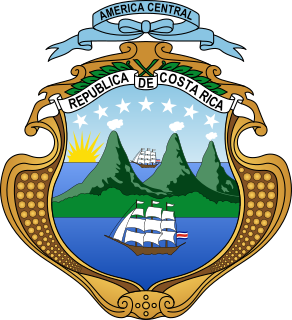
General elections were held in Costa Rica on 7 December 1913, the first direct elections since 1844. They were also the first elections to have universal male suffrage, after economic and educational requirements were eliminated. Máximo Fernández Alvarado of the Republican Party won the presidential election, but both he and runner-up Carlos Durán Cartín later resigned and Alfredo González Flores was appointed president by Congress on 8 May 1914. The Republican Party also won the parliamentary election. Voter turnout was 78.0% in the presidential election and 78.6% in the parliamentary election.

General elections were held in Costa Rica on 1 April 1917. Federico Tinoco Granados had seized power in a military coup in January and was the only candidate in the presidential election. The elections were considered to be fraudulent and although former president Rafael Yglesias Castro received 249 votes in Alajuela, they were recorded as invalid ballots. Voter turnout was reported to be 69.2% in the presidential election and 67.6% in the parliamentary election.

Parliamentary elections were held in Andorra on 9 December 1981, with a second round of voting on 16 December. Local elections were held on the same day. Following the elections, Òscar Ribas Reig became the country's first Prime Minister.

Direct presidential elections were held for the first time in Bulgaria on 12 January 1992, with a second round on 19 January. The result was a victory for incumbent President Zhelyu Zhelev of the Union of Democratic Forces, who won 52.8% of the vote in the second round. Voter turnout was 75.4% in the first round and 75.9% in the second. Zhelev had originally been elected as President by the Grand National Assembly in 1990.
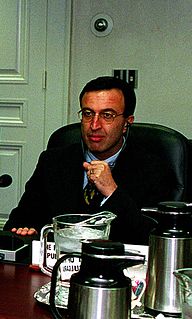
Presidential elections were held in Bulgaria on 27 October 1996, with a second round on 3 November. The result was a victory for Petar Stoyanov of the United Democratic Forces, who won 59.7% of the vote in the second round. Voter turnout was 63.3% in the first round and 61.8% in the second.
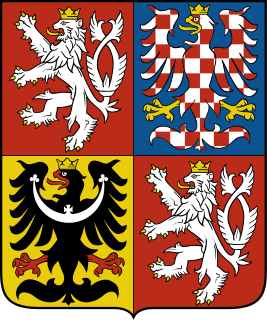
Senate elections were held in the Czech Republic for the first time on 15 and 16 November 1996, with a second round on 22 and 23 November. the first after independence. The result was a victory for the Civic Democratic Party, which won 32 of the 81 seats. Voter turnout was 34.9% in the first round and 30.6% in the second.

Senate elections for a third of chamber were held in the Czech Republic on 13 and 14 November 1998 with a second round on 20 and 21 November.

Senate elections were held in the Czech Republic on 5 and 6 November 2004, with a second round on 12 and 13 November. The result was a victory for the Civic Democratic Party, which won 37 of the 81 seats. Voter turnout was 28.6% in the first round and just 18.4% in the second.
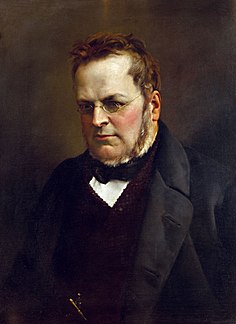
General elections were held in Italy on 27 January 1861, with a second round on 3 February. The newly elected Parliament first convened in Turin on 4 March 1861, where, thirteen days later, it declared the unification of the country as the Kingdom of Italy.

General elections were held in Italy on 29 October 1882, with a second round of voting on 5 November. The "ministerial" left-wing bloc emerged as the largest in Parliament, winning 289 of the 508 seats.
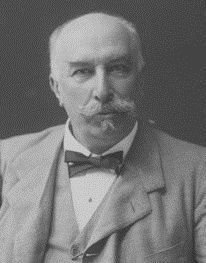
General elections were held in Italy on 6 November 1904, with a second round of voting on 13 November. The "ministerial" left-wing bloc remained the largest in Parliament, winning 339 of the 508 seats. The papal ban on Catholics voting was relaxed for the first time, and three Catholics were elected.

General elections were held in Liechtenstein on 11 March 1918, with a second round on 18 March. They were the first elections held in the country contested by political parties, as the Christian-Social People's Party and Progressive Citizens' Party had been founded that year. The Progressive Citizens' Party emerged as the largest in the Landtag, winning seven of the 12 elected seats.

Parliamentary elections were held in the Socialist Republic of Macedonia on 11 November 1990, with a second round on 25 November. They were the first competitive elections in the country's history. VMRO-DPMNE emerged as the largest party, winning 38 of the 120 seats.


